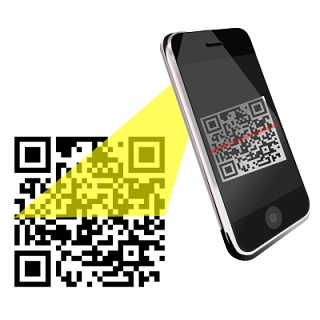QR codes more familiar with smart phone owners than reports suggest
Perception Research Services (PR S) has released the results of a new survey concerning QR codes and their familiarity among consumers in the U.S. QR codes have become widely used mobile marketing tools, allowing companies to engage consumers that are highly reliant on their mobile devices. The codes have proven capable of providing consumers with valuable information that can influence purchases. Despite the prospects of QR codes, however, some reports suggest that they are rarely used by consumers and that many people do not know what the codes are. This is not the case, according to PRS.
S) has released the results of a new survey concerning QR codes and their familiarity among consumers in the U.S. QR codes have become widely used mobile marketing tools, allowing companies to engage consumers that are highly reliant on their mobile devices. The codes have proven capable of providing consumers with valuable information that can influence purchases. Despite the prospects of QR codes, however, some reports suggest that they are rarely used by consumers and that many people do not know what the codes are. This is not the case, according to PRS.
Survey shows mobile shoppers are in tune with QR codes
According to the PRS survey, approximately 54% of consumers surveyed own smart phones. Nearly 76% of these people make use of their mobile device for shopping purposes through mobile commerce platforms. Roughly half of these mobile shoppers use their devices to check prices and do research on products they may be interested in. Electronics and packaged goods are the most common categories consumers focus on while using their mobile device to shop.
94% of smart phone owners recognize QR codes
The survey shows that a staggering 94% of smart phones owners recognize QR codes, with another 44% saying they have used the codes while shopping before. The PRS survey suggests that consumers are not as unfamiliar with QR codes as other research has suggested in the past. The level of comprehension smart phone owners show with the codes may actually be one of the reasons advertisers and retailers continue using the codes so aggressively.
Poor experiences could discourage QR code use
Despite the fact that such a high percentage of smart phones owners know what QR codes are, they may still be relatively leery of using the codes for many reasons. Retailers and advertisers often use QR codes to engage mobile consumers, but few companies actually take the time to test their codes to ensure a positive consumer experience. A poorly implemented code could discourage consumers from using them in the future, and word of mouth often persuades other consumers to avoid QR codes as well.
 Survey aims to shed light on the possible future of mobile commerce
Survey aims to shed light on the possible future of mobile commerce
Mobile commerce may be a rampant success now, but the future of the phenomenon is still unclear. Though consumers have shown great interest in mobile commerce, it is difficult to tell whether this enthusiasm will continue as the economies of the world change and greater security risks emerge in developed markets. Wedbush Decisions Metrics, a market intelligence firm, has released the results of a new survey that aims to shed light on what the future of mobile commerce may be, from the perspective of leading retail companies.
Retailers continue to show interest in mobile consumers
Retailers have taken to mobile commerce in an aggressive fashion, hoping to take advantage of the growing popularity of the concept. While many retailers have long relied on e-commerce gateways — websites that facilitate sales — more companies are adopting point of sale technologies that allow consumers to purchase products in-store with their mobile devices. Consumers are becoming more interested in mobile wallet platforms, which are applications that help facilitate mobile payments. The Wedbush survey notes that mobile commerce will be a significant growth driver for the technology marketplace, which is occupied by companies like eBay and Amazon.
Mobile wallets are a popular tool for consumers
The survey suggests that retailers consider mobile commerce as the next step in the ongoing evolution of e-commerce. The results of the survey show that mobile commerce is performing well in this regard, as consumer engagement is quite high, following a similar trend that emerged when e-commerce began growing in popularity. The survey shows that frequent shoppers are three times as likely to make purchases from their mobile device using a mobile wallet application than traditional consumers.
PayPal cited as most trusted platform
The survey suggests that PayPal has established a strong lead in the mobile wallet space. The company has long held a strong position in the commerce space and has been working to engage mobile consumers in an aggressive fashion. They survey notes that approximately 85% of consumers trust PayPal, making the platform one of the most trusted brands in mobile commerce currently.
 S) has released the results of a new survey concerning QR codes and their familiarity among consumers in the U.S. QR codes have become widely used mobile marketing tools, allowing companies to engage consumers that are highly reliant on their mobile devices. The codes have proven capable of providing consumers with valuable information that can influence purchases. Despite the prospects of QR codes, however, some reports suggest that they are rarely used by consumers and that many people do not know what the codes are. This is not the case, according to PRS.
S) has released the results of a new survey concerning QR codes and their familiarity among consumers in the U.S. QR codes have become widely used mobile marketing tools, allowing companies to engage consumers that are highly reliant on their mobile devices. The codes have proven capable of providing consumers with valuable information that can influence purchases. Despite the prospects of QR codes, however, some reports suggest that they are rarely used by consumers and that many people do not know what the codes are. This is not the case, according to PRS.
 Survey aims to shed light on the possible future of mobile commerce
Survey aims to shed light on the possible future of mobile commerce